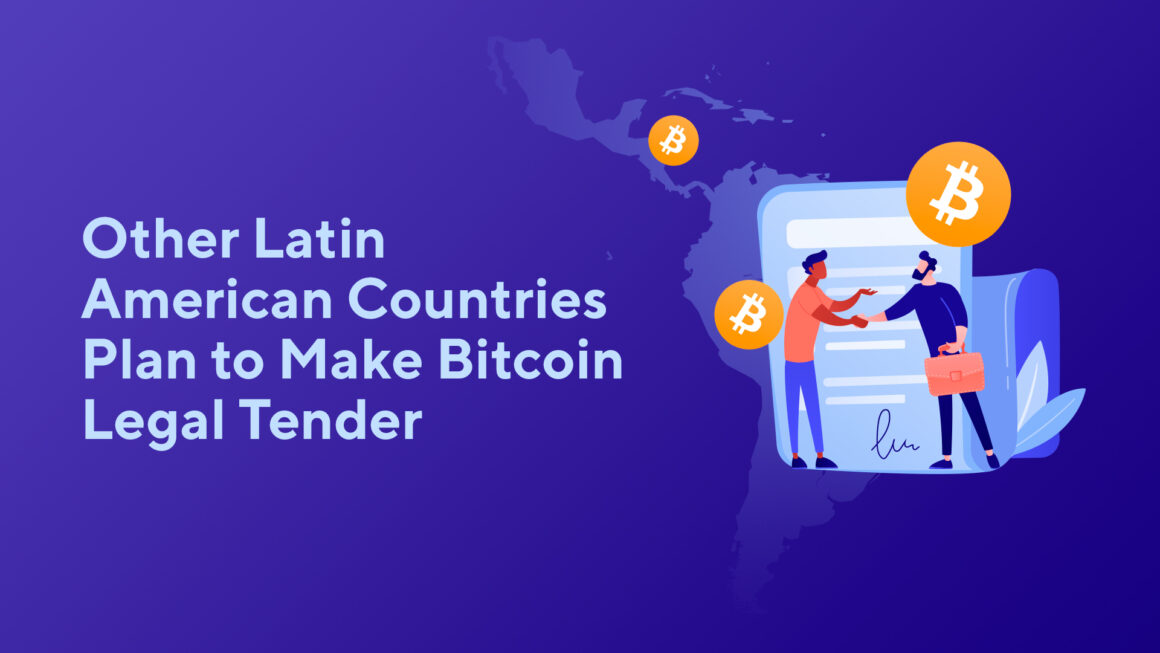Today, more and more politicians, especially in smaller countries, see the benefits of Bitcoin for their own country. Thus, Paraguay, Tonga, and Tanzania are trying their best to adopt Bitcoin after the decision of El Salvador. What’s happening? Let’s try to find out!
El Salvador Showed the Way to Bitcoin
The news that El Salvador made Bitcoin a legal tender (El Salvador doesn’t have its own national currency), was a big surprise, which caused quite a stir. Nayib Bukele had a good starting position, as he more or less controlled Congress and could be sure in advance that his bill would be approved.
So he had an opportunity to act quickly, thus, only a few days passed from announcement to implementation. The President then went straight to work, for example, he initiated the construction of a Bitcoin mining facility that will use the natural energy of a volcano. Additionally, a few days ago it was announced that every adult citizen of El Salvador would receive $30 in bitcoins.
This measure is intended to arouse the interest of the population and ensure greater acceptance of cryptocurrencies. Previously, there were reports from Salvadoran entrepreneurs who spoke out against the mandatory acceptance of Bitcoin as a means of payment.
More Countries Are Interested in Bitcoin
Admittedly, El Salvador is a relatively small country with 6 million inhabitants. However, its latest announcement caused quite a stir. Within less than 24 hours numerous representatives of Central and South American governments, including Brazil, Colombia, and Mexico, have started to post tweets on this topic. These are larger countries with more inhabitants and better economic prospects.
Although there haven’t been any concrete, target-oriented initiatives yet. However, all the above-mentioned countries offer hope. The exception is Paraguay, where a legislative proposal was submitted a few days ago by a member of congress, but its acceptance is questionable. The applicant is non-party and represents 2 out of 80 votes in Congress.
But there is more positive news from other countries in the world, starting with Tonga. Tonga is an island kingdom in the Pacific, a few thousand kilometers east of Australia, better known in Europe for a ‘.to’ domain. A government representative tweeted several posts in the last few days that show that they are working on a mining facility harnessing the power of the sea:
Bitcoin has also recently gained popularity in another exotic country, namely in African Tanzania. The President of Tanzania called for the government and the central bank to deal more with Bitcoin and to work on a law. The central bank in Tanzania banned Bitcoin trading in November 2019.
Conclusion: Chances for Bitcoin Mass Adoption Are Increasing
The chances of successful mass adoption of Bitcoin around the world have increased significantly in the past few weeks. There’re still some inconsistencies in the context of El Salvador, such as the lack of support from the IMF (International Monetary Fund) or limited enthusiasm from traders and entrepreneurs in the country. Nevertheless, it was a signal for the whole world that Bitcoin in 2021 will be more than just an interesting currency from the Internet.

Leave a Reply